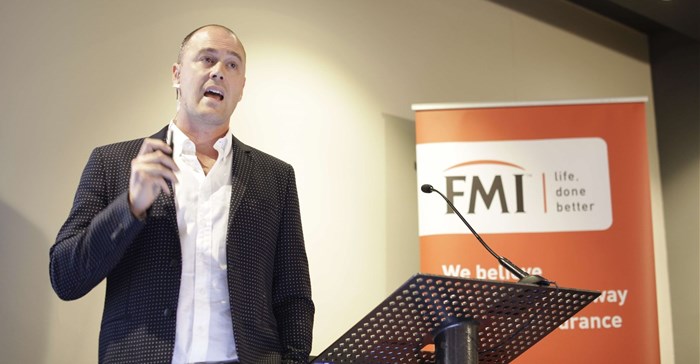
Top stories






More news














Simply put, the South African insurance industry is in dire need of a reality check, says Brad Toerien, CEO of FMI. To give the industry the wakeup call it desperately needs, FMI conducted the #RealityCheck consumer survey, a first of its kind for South Africa.
“We conducted the survey to understand the perceptions of our industry, and introduce the realities that affect advisers and clients. Our aim is to change the life insurance industry for the better, and help protect the income of millions of South Africans when illness, injury or death occur,” explains Toerien.
The survey aims to unveil consumer perceptions around the industry and the insights into why there are so many South Africans that are uninsured, including:
Furthermore, Toerien explains that the insurance industry finds itself at a precarious moment in history.
“Advisers say their role and responsibility is now harder than ever before, due to advances in technology. Customers now have far more access to information, and are expecting more from providers. It is therefore imperative that both insurance providers and advisers change with the times, to ensure that customers understand the products that are available and help to change their mind-set regarding the benefits of income cover for illness, injury and death,” he says.
There is still a general misunderstanding regarding the difference between life insurance and death cover. The survey showed that 48% of respondents believe that life insurance is death cover.
“This is a problem for the industry and one of the reasons why there are so many South Africans uninsured. The perception of death cover effectively means people don’t have cover because they simply don’t see the need for it. This could also mean that many have life cover, when they actually don’t need it, and may have an incorrect mix of cover,” says Toerien.
In the past, insurance providers have offered mainly lump sum benefits - especially for disability, critical illness and life cover. He warns that while this is a great way to settle debts or once-off expenses, they’re usually insufficient to cover unexpected monthly expenses.
“Income benefits are far easier to understand, as you don’t need to calculate the lump sum required to provide an entire future income. They’re also typically far more affordable than lump sum benefits, and income benefits make servicing the policy simpler in the long-term as all you would need to do is update salary amounts or monthly income with the insurer in order to ensure your client has the correct cover,” concludes Toerien.